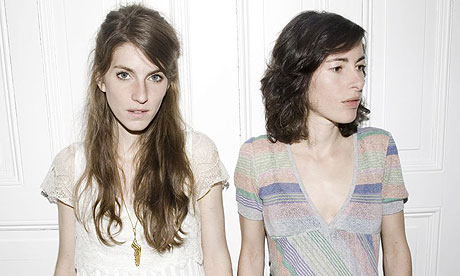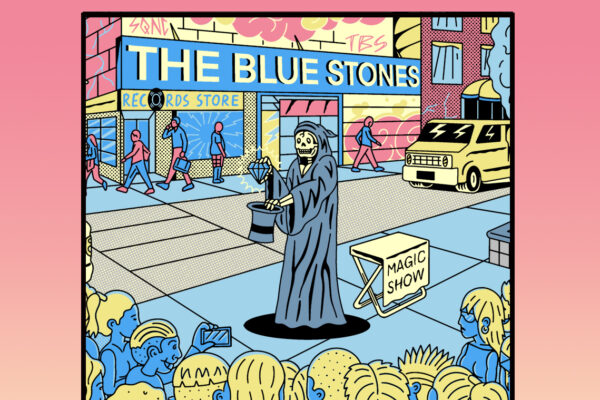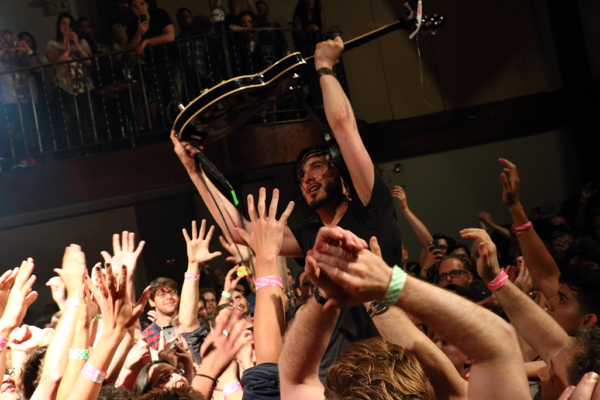We are giving away a pair of tickets to see BOY Oct 4th at Webster Hall. There are three ways to enter:
Like our Facebook Post and follow our page.
Retweet Our Twitter Post.
Like our Instagram Post.
BIO- Nettwerk:
You don’t have to spend long in the company of Valeska Steiner and Sonja Glass to work out the secret behind the success of Swiss/German duo BOY‘s debut album. Mutual Friends is a magical collection of songs – suffused with equal parts joy and melancholy – that reflects the two women’s personalities flawlessly. Seven years since they first met at a music course in Hamburg, Germany, their conversations are fuelled by laughter, their thoughts frequently running parallel as they finish each other’s sentences. “We’re like,” laughs Sonja, before Valeska interjects, “…an old couple.”
The story of their rise from musicians living in separate cities – Valeska grew up in Zurich, Switzerland, while Sonja is from Hamburg – to a chart-conquering band is as touching as the results of their collaboration. It’s also one that celebrates the dividends paid by patience, persistence and perfectionism. Though they met on the second day of that 2005 seminar and immediately felt a strong musical connection, it was another two and a half years before they began to work together: Valeska – who had sung from an early age in Switzerland, going on to gain experience with a number of bands of differing styles – was committed to other projects at home, while Sonja, who grew up playing the cello before studying bass guitar in the Netherlands, continued to play with other German acts. But Sonja had known from the first moment they played together that, were she to form a band of her own, Valeska would have to be the singer. In fact, she didn’t even seek an alternative. Finally, in 2008, she received an email from Valeska suggesting they give collaboration a try. Accepting the offer didn’t take a moment.
By then, Valeska had moved to Hamburg, and though they now lived in the same city, they still needed to find their way of working together. Early attempts to write by playing and singing together proved ineffective, and it took a while for them to find a method that suited them both. Eventually Sonja began emailing instrumental tracks to Valeska, who then worked on lyrics and melodies for the songs that appealed most before they refined them together. This still presented problems when it came to live performance. The songs had been written for a full band, something the two of them were unable to afford, and adapting the arrangements proved troublesome. Nonetheless, they began performing shows to small crowds as a duo, starting out in modest clubs in Switzerland and Germany, taking the train to shows, or borrowing a car from Valeska’s mother. Eventually their perseverance paid off: they were offered the opportunity to open for two more established acts, and suddenly found themselves on stage before audiences in their thousands.
Simultaneously, they began recording in Berlin with producer Philipp Steinke, who they affectionately refer to as “the third Boy.” The process took time: they found themselves shifting between weeks spent on the road to time spent writing, before heading into the studio for another couple of weeks, and then back on the road. During this period, songs were frequently reworked, and there were moments when they argued about the best way to present them. But the goal always remained the same: to find something that pleased all three of them – Valeska, Sonja and Philipp – without anyone feeling like their work had been compromised.
In the seclusion of the 12 square meter room in which Philipp had grown up and had since transformed into a home recording studio, they worked intensely, playing most of the instruments themselves. For brass, additional strings and drums, they invited guest musicians to play on the record–amongst themPhoenix’s drummer, Thomas Hedlund, whom Valeska had met when the French band played in Zurich some years earlier. “He’s such an amazing musician,” Sonja enthuses. “We had this song, ‘Oh, Boy,’ which had programmed beats, and we thought, ‘If we had one wish in the world as to who could play this song, it would be him.’” They were initially a little shy to ask, Valeska admits, “But we are so happy we did. It’s good to know now that it’s always worth taking a chance. In the end, he played the drums on four songs on the album.”
With most of the album under their belts, the band still struggled to find a label, and even considered releasing the record alone. Given the reactions at shows, however, they knew they had an audience, and Anglo-German label Grönland Records finally stepped into the breach. Their show of faith proved prescient: BOY‘s rapid ascent was beyond everyone’s wildest dreams, accelerated by a video for their debut single, “Little Numbers,” which flawlessly captured the song’s allure. Filmed without a storyboard in Barcelona, it found the duo playing their music as they wandered the city’s streets–the honest, delighted responses of passing strangers caught on camera. Video ‘covers’ soon began to proliferate, as did anticipation for their album, and, though it was only released in a few European countries, sales swiftly spiraled to over 100,000. They recall how, shortly before its release, they’d felt excited when they’d opened a show at Hamburg’s 4,000 capacity Stadtpark. A year later, they were headlining the same place.
What helps set Mutual Friends apart from so many other records is its utterly unforced nature. While lyrically it’s accessible–a result of Valeska’s own preference for music where the singer’s intent is clear–musically it’s a complex affair that seems to adapt to the listener’s mood, capable of sounding both extraordinarily happy and exquisitely mournful. Remarkably, it’s never depressing, instead offering a genuine warmth and comfort that’s hard to fake.
Much of the record focuses on goodbyes and new starts, subjects that were close to Valeska’s heart as she settled into her new home. It opens suitably with the first song they ever wrote together, “This Is The Beginning,” a fragile but graceful track infused with the duo’s characteristic optimism, and ends with the understated, heart-warming “July,” its closing lyrics capturing the record’s mood of renaissance perfectly: “Now it all makes sense / It brought you here / It only brought you home.” Scattered in between ar gentle, compassionate compositions that tell tales of friendship and loneliness, infatuation and flirtation, and, of course, love and loss. Each is perfectly poised musically, the voice pure, the arrangements assured but modest, every instrument given space to breathe. Informed by a mutual love of acts like Bon Iver, Phoenix and Feist, it’s an album of simple, heartfelt pop decorated with art school elegance and occasional folky flourishes. There’s perhaps only one perfect word to sum up such a likeable pair and their delicious debut: natural.
The next part of their dream is about to begin with the North American release of Mutual Friends viaNettwerk Records on February 26, 2013. Sonja has never visited America, and her excitement is palpable, while Valeska, too, is impatient to embark upon the next leg of their adventure. It’s always been her dream, she confides, to perform in the country ever since she started listening to American singer/songwriters like Suzanne Vega and Shawn Colvin as a teenager. They’ve also already heard rumors of radio play for “Little Numbers,” and their reaction makes it clear that they’ve lost none of the innocent, humble charisma that has helped win Europe’s heart. As they themselves put it in that first song they ever wrote:
Of anything you want…”




